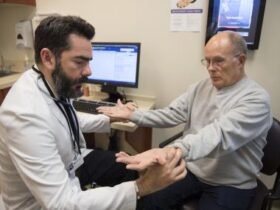Public health science is a discipline that shapes our understanding of health, wellness, and disease prevention on a community and global scale. This field encompasses research, policy development, and implementation strategies aimed at improving the quality of life across populations. Through addressing health disparities and enhancing healthcare systems, public health science plays a critical role in building a safer, healthier society.
Defining Public Health Science
So, what is public health science? At its core, public health science is the study and practice of protecting and improving community health through preventive care, disease control, and health education. Unlike clinical medicine, which focuses on diagnosing and treating individual patients, public health science takes a broader approach by examining and addressing health trends in populations. It involves interdisciplinary methods that combine biology, epidemiology, sociology, environmental science, and health policy to create a holistic approach to health improvement.
The Core Functions of Public Health Science
The core functions of public health science revolve around three main objectives: assessment, policy development, and assurance. Assessment involves analyzing health data to identify trends, outbreaks, and issues that may affect the public. Policy development focuses on creating health guidelines and regulations that benefit the community. Assurance ensures these policies are effectively implemented and services are accessible. Through these functions, public health science provides a foundation for building healthy environments.
Key Objectives of Public Health Science
Public health scienc’e aims to enhance health, prevent disease, and promote wellness across diverse populations. Public health scientists work to reduce health disparities, tackle social determinants of health, and improve access to health services. Another objective of public health scienc’e is to protect vulnerable communities by establishing evidence-based practices that minimize disease transmission and other health risks. Public health science constantly evolves to address emerging health threats and environmental challenges, ensuring it remains relevant.
Importance of Public Health Scienc’e in Disease Prevention
Public health scienc’e is crucial in preventing diseases by identifying risk factors, educating communities, and implementing vaccination programs. Through research and surveillance, public health scientists analyze health trends and create preventive measures to reduce illness spread. A key component of public health science is epidemiology, which focuses on tracking and managing disease outbreaks. Public health scienc’e also plays a pivotal role in creating immunization schedules, sanitation standards, and lifestyle guidelines that help prevent diseases before they spread.
Public Health Scienc’e and Health Promotion
Public health scienc’e promotes health by encouraging healthier lifestyles and practices through education and resources. Health promotion is a cornerstone of public health scienc’e, aiming to empower communities with knowledge and tools to make healthier choices. This area of public health scienc’e addresses smoking cessation, physical activity, mental health awareness, and nutrition. By emphasizing health education and resources, public health scienc’e inspires positive behavioral changes and supports well-being.
How Public Health Scienc’e Influences Policy and Governance
Public health scienc’e influences policy and governance by providing data-driven recommendations that shape health-related laws and regulations. Health policies informed by public health scienc’e address critical issues such as air and water quality, food safety, infectious disease control, and occupational health standards. These policies have far-reaching impacts, improving the safety and quality of life for individuals and communities. Public health scienc’e helps governments and organizations make informed decisions based on scientific evidence, prioritizing the health and safety of populations.
Careers in Public Health Scienc’e
The field of public health scienc’e offers a variety of career paths, including roles in research, health education, epidemiology, biostatistics, and environmental health. Public health professionals play key roles in hospitals, government agencies, non-profits, and research institutions, working collaboratively to enhance public health. Some careers in public health scienc’e involve fieldwork, such as disease investigation and data collection, while others focus on policy analysis and health communication. A career in public health science offers meaningful opportunities to contribute to population health and wellness.
Role of Data in Public Health Scienc’e
Data is central to public health scienc’e, providing essential insights into health trends, disease outbreaks, and community needs. Public health scienc’e relies on data collection, analysis, and interpretation to identify health disparities, track disease progression, and measure intervention outcomes. Health data collected by public health scienc’e professionals enables evidence-based decision-making, which leads to more effective policies and interventions. With advancements in technology, public health scienc’e can leverage big data and artificial intelligence for even more precise analysis and forecasting.
Challenges Facing Public Health Scienc’e
Public health scienc’e faces several challenges, including resource constraints, misinformation, and political influence. Limited funding and staffing shortages can hinder the ability of public health scienc’e initiatives to reach their full potential. Public health scienc’e must also combat misinformation, particularly in areas like vaccination, which has impacted community health. Political challenges arise when public health scienc’e policies and guidelines clash with economic or ideological priorities. Despite these hurdles, public health scienc’e remains resilient, continuously striving to improve community health and well-being.
Future Directions for Public Health Scienc’e
As global health challenges grow, the future of public health scienc’e involves expanding its focus to address climate change, emerging diseases, and health equity. The future of public health scienc’e includes integrating new technologies, such as machine learning and genomics, to refine disease tracking and interventions. Public health scienc’e will also need to adopt a global perspective, emphasizing international collaboration to combat pandemics and environmental threats. By staying adaptable, public health scienc’e can continue to protect and promote health worldwide.
Conclusion
Public health scienc’e is an essential field that safeguards the health and well-being of communities worldwide. From tracking disease outbreaks to promoting healthy lifestyles, public health scienc’e addresses a wide array of challenges to build healthier, safer societies. Through research, education, and policy development, public health scienc’e continues to evolve to meet emerging health needs. By investing in public health scienc’e, society can better prevent disease, promote wellness, and respond effectively to public health threats.






